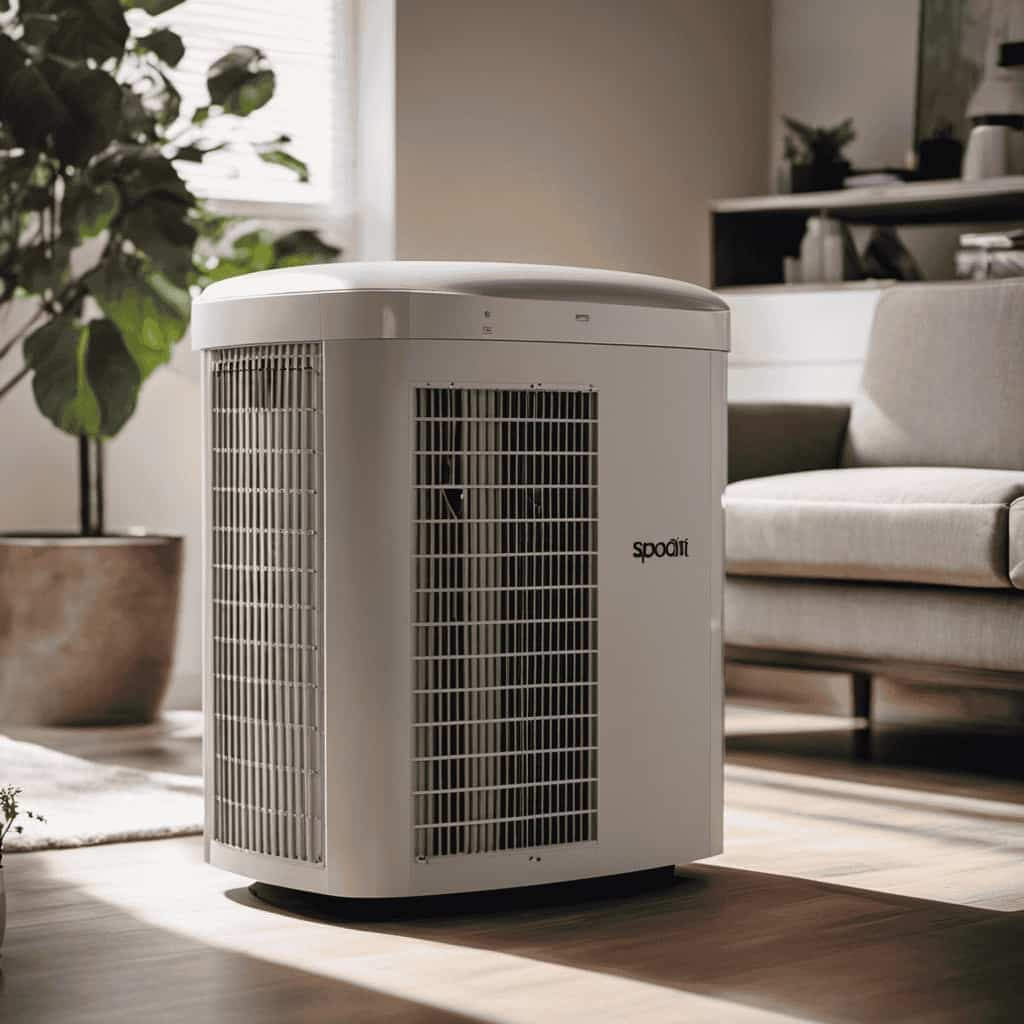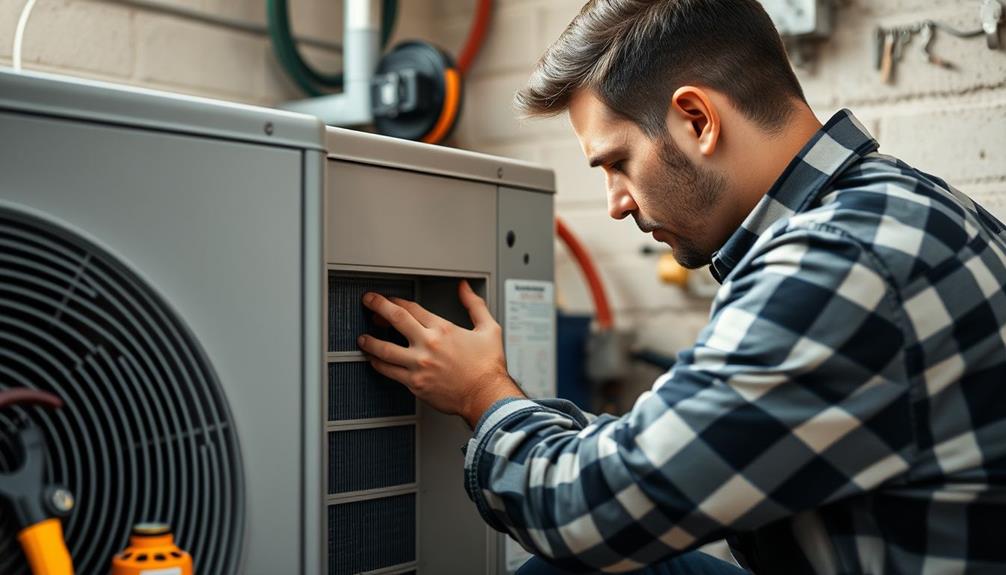We’ve discovered some intriguing statistics about recent technological advancements in heat pump refrigeration.
The advancements in compressor technology and heat exchanger design are revolutionizing the efficiency of heat pump systems.
With the integration of variable speed technology and smart controls, we’re seeing a significant increase in energy savings.
Additionally, emerging trends in heat pump refrigerants are paving the way for a more sustainable future.
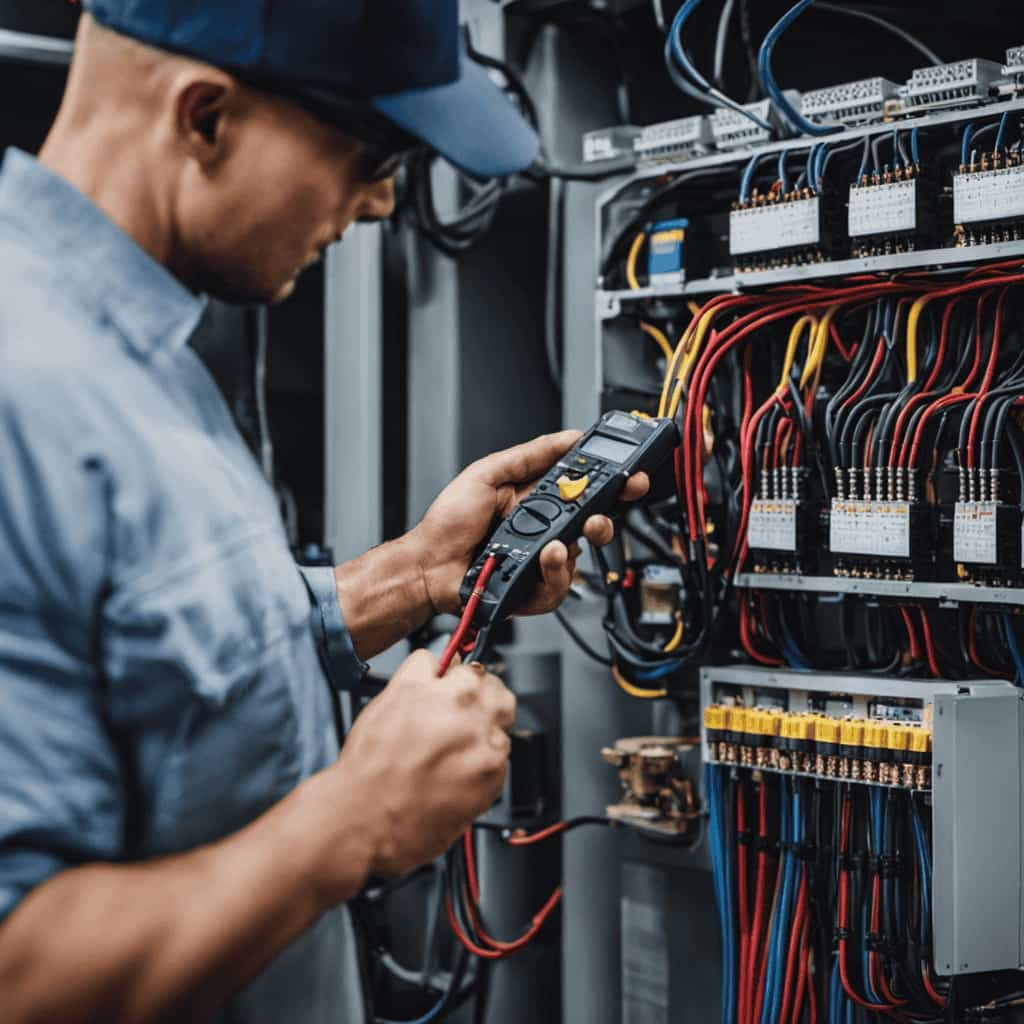
Join us as we decode these exciting developments and explore the future prospects and challenges in heat pump refrigeration technology.
Key Takeaways
- Variable speed technology in heat pump compressors improves energy efficiency, temperature control, and humidity management.
- Innovations in heat exchanger design, such as new materials and optimized geometries, enhance heat transfer capabilities and reduce energy consumption.
- Variable speed technology in heat pumps optimizes operation, saves energy, reduces cycling, and improves heat transfer and load matching.
- The integration of variable speed technology and smart controls in heat pump systems leads to significant energy savings, while emerging trends in refrigerants contribute to a more sustainable future.
Overview of Heat Pump Refrigeration Cycle
Let’s start by understanding the basic operation of the heat pump refrigeration cycle.
The heat pump refrigeration process consists of four main components: the evaporator, compressor, condenser, and expansion valve.
The cycle begins with the evaporator, where the refrigerant absorbs heat from the surrounding air or water, causing it to evaporate.
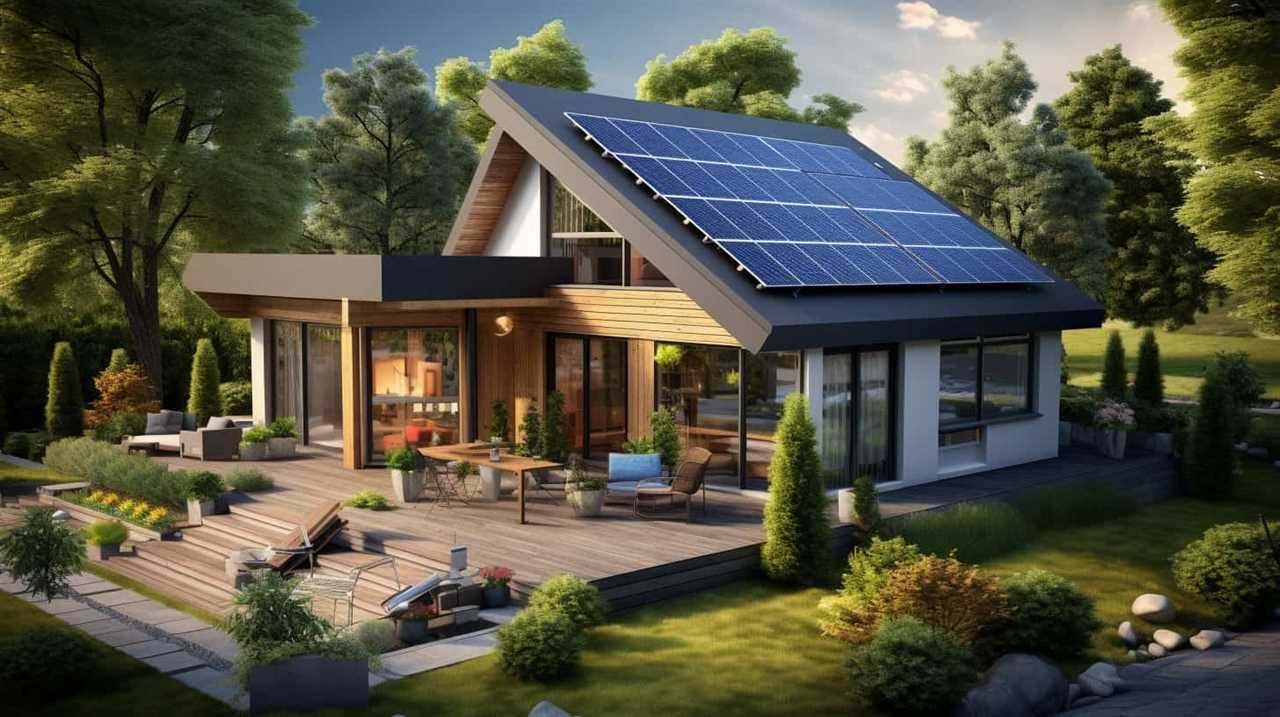
The compressor then increases the pressure and temperature of the vaporized refrigerant, pushing it into the condenser.
In the condenser, the refrigerant releases heat to the environment, causing it to condense back into a liquid state.
Finally, the expansion valve reduces the pressure of the liquid refrigerant, allowing it to return to the evaporator and start the cycle again.
Understanding the components and sequence of the heat pump refrigeration cycle is crucial for ensuring efficient and reliable operation.
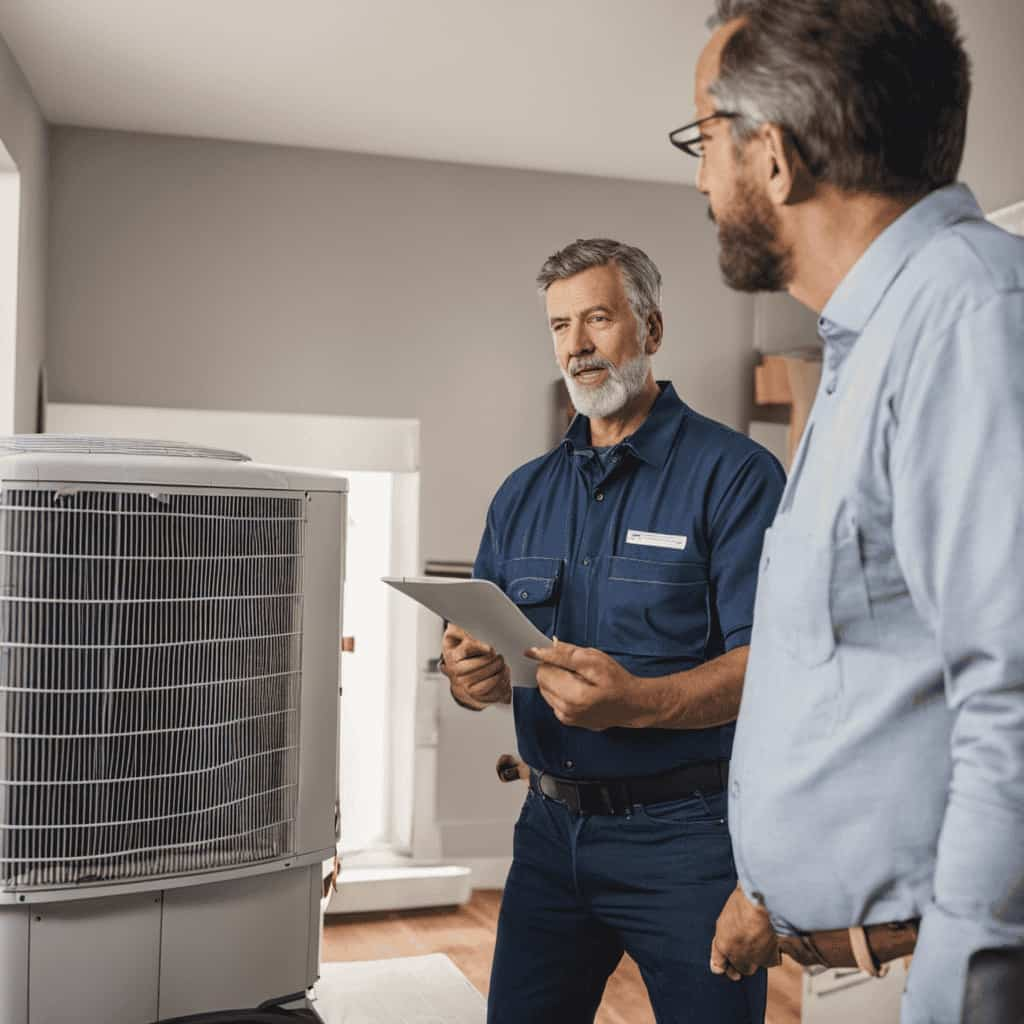
Advancements in Heat Pump Compressor Technology
We have witnessed significant advancements in heat pump compressor technology. These advancements have had a profound impact on the efficiency and performance of heat pumps.
One major advancement is the development of variable speed technology for compressors. This technology allows the compressor to adjust its speed based on the heating or cooling demand, resulting in improved energy efficiency.
The impact of variable speed technology on heat pump efficiency is substantial. It allows the heat pump to operate at lower speeds when the demand is low, reducing energy consumption. Additionally, variable speed technology enables the heat pump to provide more precise temperature control and better humidity management.
Innovations in Heat Exchanger Design for Heat Pump Refrigeration
Our team has observed exciting innovations in heat exchanger design for heat pump refrigeration, revolutionizing the efficiency and performance of these systems.

One significant area of advancement is the development of new heat exchanger materials. Traditional materials, such as copper and aluminum, are being replaced by more efficient alternatives like stainless steel, titanium, and even polymer-based materials. These new materials offer improved heat transfer properties, corrosion resistance, and durability, resulting in higher overall system efficiency.
Another area of innovation is heat transfer optimization. Researchers are exploring various techniques, such as enhanced surfaces, microchannel designs, and advanced geometries, to maximize heat transfer between the refrigerant and the surrounding medium. By optimizing heat transfer, heat pump refrigeration systems can achieve higher coefficients of performance and reduce energy consumption.
These advancements in heat exchanger design have the potential to significantly impact the efficiency and performance of heat pump refrigeration systems. With improved heat transfer capabilities and more durable materials, these systems can provide more efficient cooling and heating solutions for a wide range of applications.
As we delve into the next section, we’ll explore another important technological shift in heat pump refrigeration – the impact of variable speed technology on system efficiency.

Impact of Variable Speed Technology on Heat Pump Efficiency
In our examination of the impact of variable speed technology on heat pump efficiency, we’ll explore the key factors that contribute to the increased efficiency achieved through this technology.
We’ll analyze the role of variable speed compressors and how they optimize the operation of heat pumps by adjusting the speed to meet the specific heating or cooling demands.
Additionally, we’ll investigate the advancements in control algorithms and sensors that enable precise monitoring and adjustment of the system, further enhancing its overall efficiency.
Efficiency of Variable Speed
Variable speed control plays a crucial role in improving the energy savings and overall efficiency of heat pumps. Here are four key ways in which variable speed technology enhances heat pump efficiency:
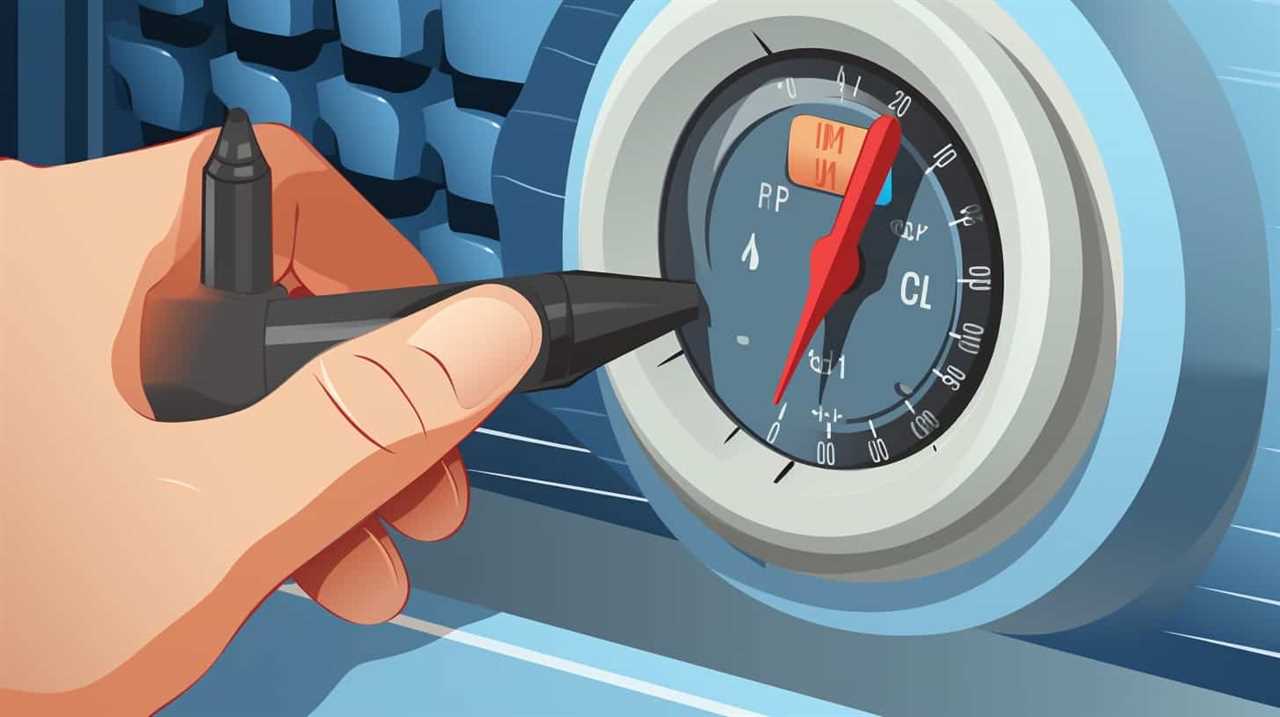
-
Optimal Speed Adjustment: Variable speed control allows the heat pump to adjust its speed based on the heating or cooling demand. This ensures that the heat pump operates at the most efficient speed, saving energy and reducing operating costs.
-
Reduced Cycling: With variable speed technology, heat pumps can operate at lower speeds for longer durations, which minimizes the need for frequent starts and stops. This reduces energy consumption and wear and tear on the system.
-
Enhanced Heat Transfer: Variable speed technology enables heat pumps to modulate the refrigerant flow rate, optimizing heat transfer between the indoor and outdoor environments. This improves the overall efficiency of the heat pump.
-
Improved Load Matching: By continuously adjusting the speed, variable speed technology allows heat pumps to precisely match the heating or cooling load requirements. This prevents energy wastage and ensures optimal comfort levels.
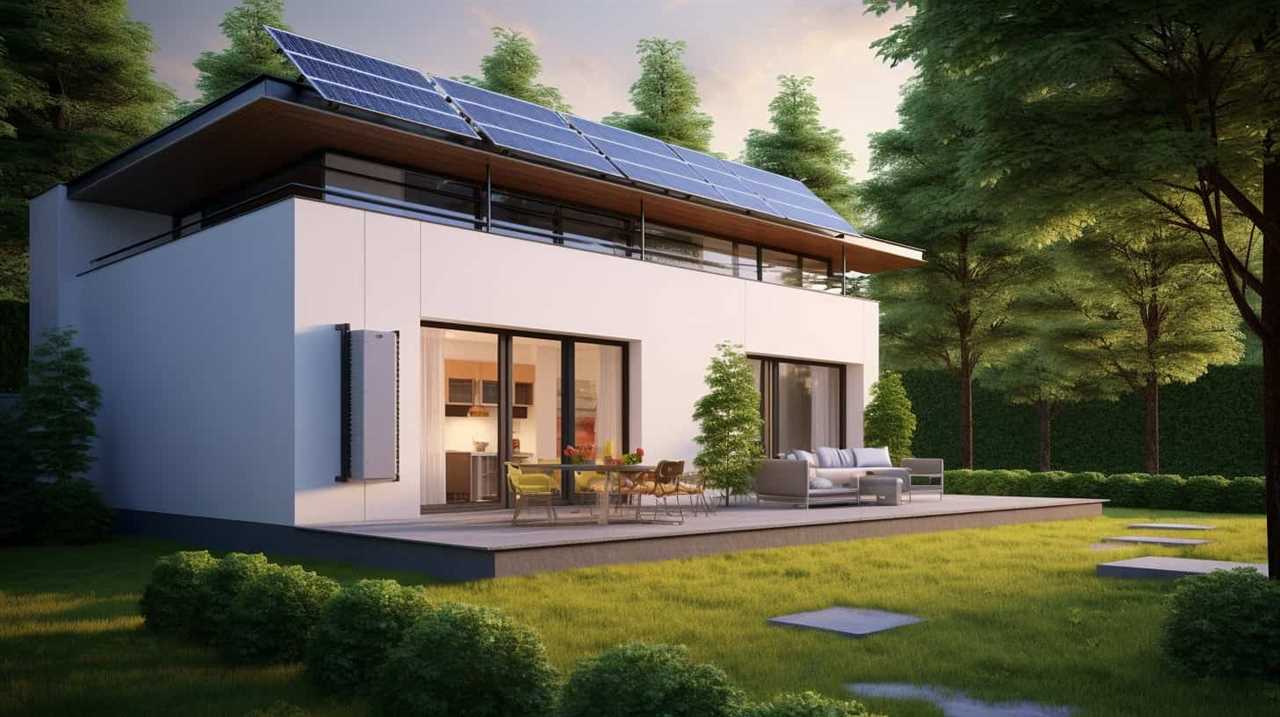
The efficiency of heat pumps has significantly improved with the integration of variable speed technology. In the following section, we’ll explore the impact of other technological advancements on heat pump efficiency.
Tech Advancements and Efficiency
We frequently observe that variable speed technology significantly enhances the efficiency of heat pumps. This is due to the ability of variable speed compressors to adjust their speed and capacity according to the heating or cooling demands of a space. By operating at lower speeds when less heating or cooling is required, variable speed compressors can reduce energy consumption and improve overall efficiency.
One of the key tech breakthroughs in variable speed technology is the use of advanced control algorithms. These algorithms allow the heat pump to continuously monitor and adjust its operation based on factors such as outdoor temperature, indoor humidity, and occupancy levels. This level of control enables the heat pump to optimize its performance and minimize energy waste.
To illustrate the impact of variable speed technology on heat pump efficiency, consider the following table:
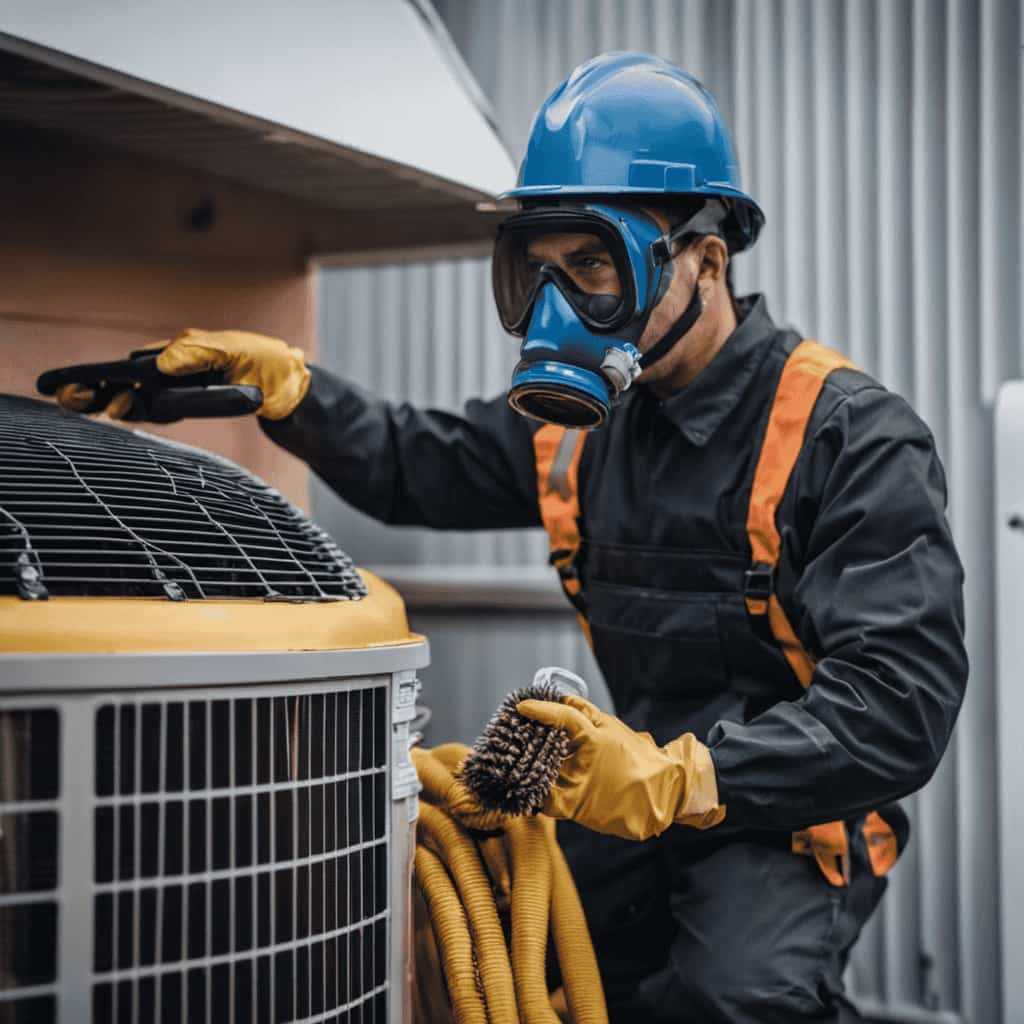
| Heat Pump Speed | Energy Consumption |
|---|---|
| Low | 800 kWh |
| Medium | 600 kWh |
| High | 1000 kWh |
As shown in the table, operating the heat pump at a lower speed (e.g., medium) can result in significant energy savings compared to running it at a higher speed (e.g., high).
Emerging Trends in Heat Pump Refrigerants
Our team is excited to explore the emerging trends in heat pump refrigerants. As environmental concerns continue to grow, emerging refrigerant regulations have become a significant driver in the development of new heat pump refrigerants. These regulations aim to reduce the environmental impact of heat pump refrigerants by promoting the use of low global warming potential (GWP) alternatives.
Here are four key trends in heat pump refrigerants that are currently shaping the industry:
-
Transition to low-GWP refrigerants: Manufacturers are shifting towards refrigerants with lower GWP to meet regulatory requirements and reduce greenhouse gas emissions.

-
Adoption of natural refrigerants: Natural refrigerants, such as carbon dioxide (CO2) and hydrocarbons, are gaining popularity due to their low environmental impact and high energy efficiency.
-
Blended refrigerants: Blends of different refrigerants are being developed to achieve desired performance characteristics while minimizing environmental impact.
-
Integration of heat pump refrigerants with renewable energy sources: Heat pumps are being designed to synergize with renewable energy sources, such as solar and geothermal, to further reduce carbon emissions and increase energy efficiency.
Integration of Smart Controls in Heat Pump Refrigeration Systems
Smart controls are revolutionizing heat pump refrigeration systems by enhancing efficiency and optimizing performance. The implementation of smart controls in heat pump refrigeration systems is an innovative approach to energy management. These controls enable the monitoring and adjustment of various parameters, such as temperature, pressure, and airflow, to ensure optimal operation and energy savings.

By integrating advanced sensors and algorithms, smart controls can continuously analyze data and make real-time adjustments to the system’s settings. This allows for better control and coordination of the refrigeration cycle, resulting in improved energy efficiency and reduced operating costs.
Additionally, smart controls can provide remote access and monitoring capabilities, enabling technicians to diagnose and troubleshoot issues remotely, reducing downtime and improving serviceability.
The implementation of smart controls in heat pump refrigeration systems is a significant step towards achieving sustainable and cost-effective refrigeration solutions.
Future Prospects and Challenges in Heat Pump Refrigeration Technology
Looking ahead, we anticipate that heat pump refrigeration technology will continue to evolve and face various challenges in the coming years. The future of heat pump refrigeration holds immense potential for advancements, but it also brings several challenges that need to be addressed. Here are four key areas that require attention:

-
Energy efficiency improvements: As energy consumption continues to be a pressing concern, future heat pump refrigeration systems must strive for even greater energy efficiency to minimize environmental impact.
-
Refrigerant alternatives: With the global phase-out of hydrofluorocarbon (HFC) refrigerants, the industry needs to develop and adopt more environmentally friendly alternatives, such as natural refrigerants or low-GWP (Global Warming Potential) synthetic refrigerants.
-
System integration and control: To optimize performance, heat pump refrigeration systems should be equipped with advanced control algorithms and smart integration capabilities, allowing for seamless operation and effective coordination with other appliances.
-
Cost-effectiveness: Future technological advancements should focus on reducing the overall cost of heat pump refrigeration systems, making them more accessible and affordable for a wider range of consumers.
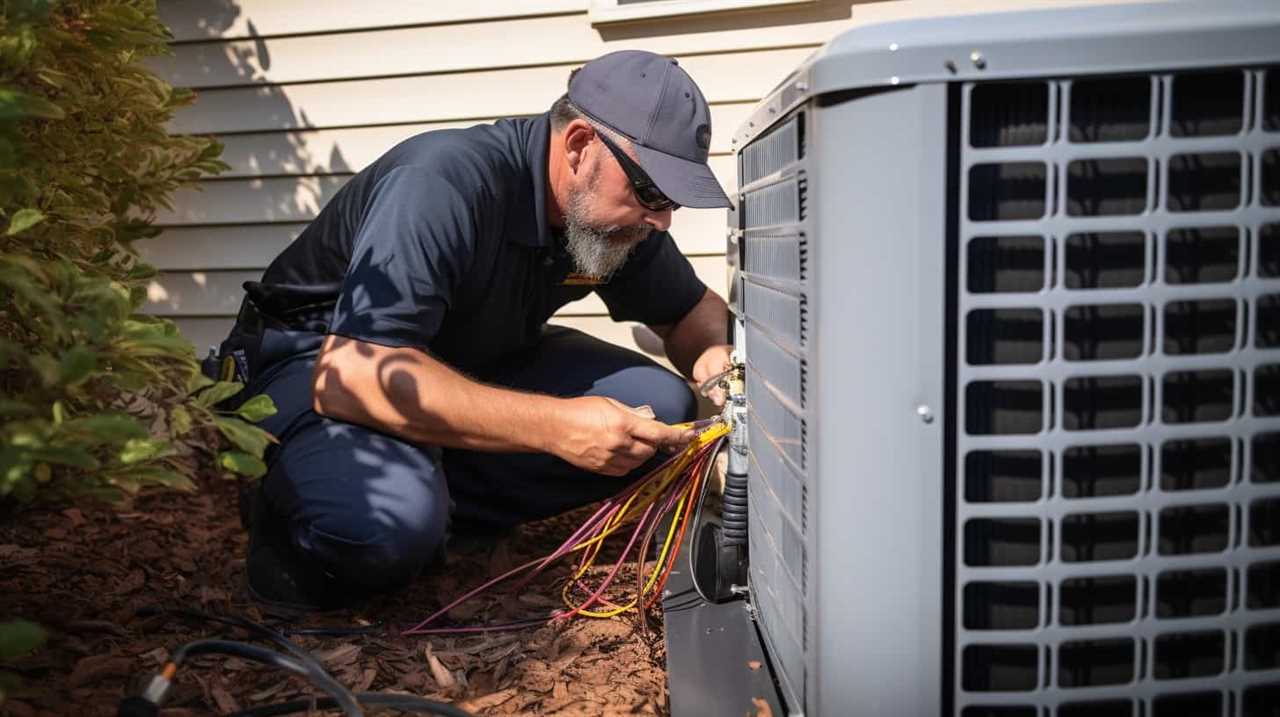
Addressing these future challenges and embracing technological advancements will be crucial in realizing the full potential of heat pump refrigeration technology and ensuring its widespread adoption.
Frequently Asked Questions
What Are the Different Types of Heat Pump Refrigeration Cycles?
There are different types of heat pump refrigeration cycles, such as geothermal heat pumps and absorption heat pumps. These cycles utilize various technologies to transfer heat and provide efficient cooling and heating solutions.
How Does Variable Speed Technology Improve the Efficiency of Heat Pump Systems?
Variable speed control is a key factor in improving energy efficiency in heat pump systems. By adjusting the speed of the compressor and fan, the system can match the heating or cooling load, resulting in optimized performance and reduced energy consumption.
What Are the Advantages of Using Smart Controls in Heat Pump Refrigeration Systems?
Advantages of remote monitoring in heat pump refrigeration systems include improved efficiency, reduced energy consumption, and proactive maintenance. Energy savings through optimization can be achieved by utilizing smart controls to monitor and adjust system performance in real-time.
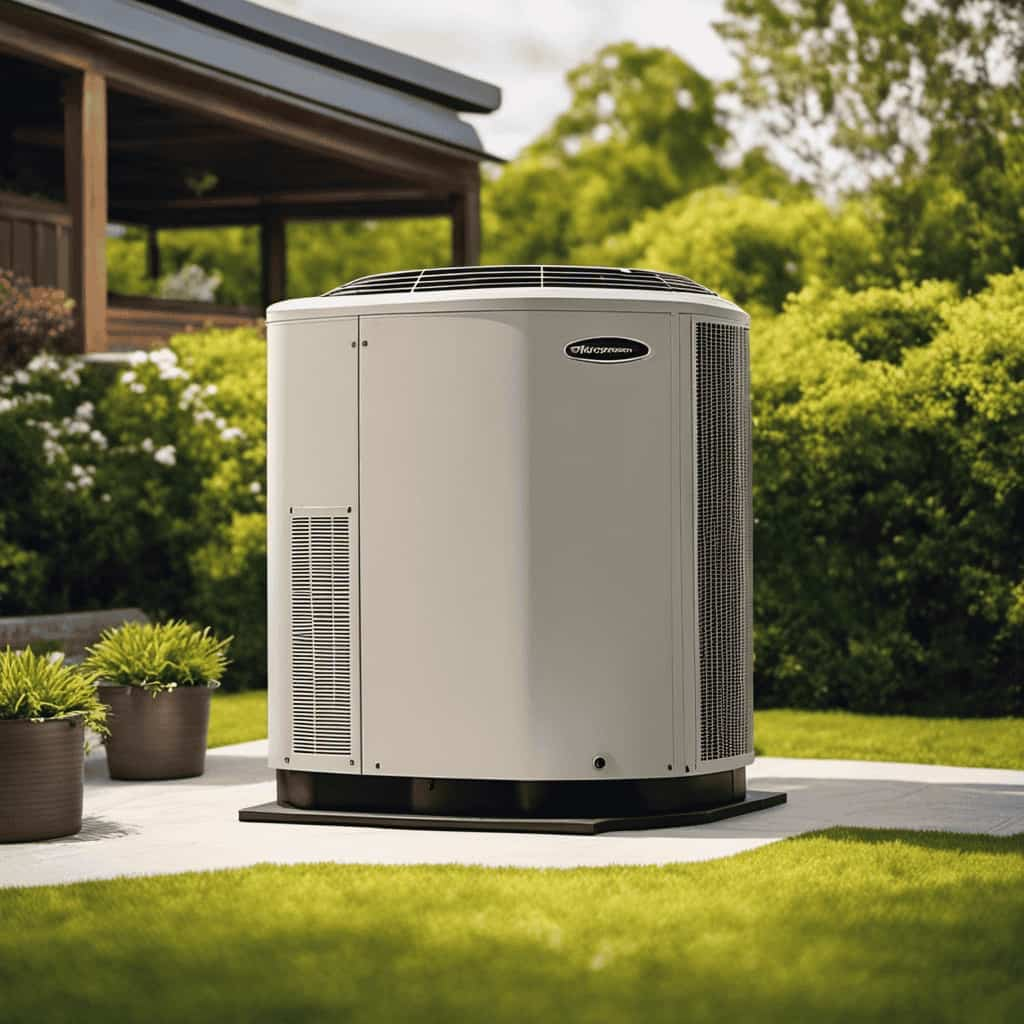
What Are the Challenges in Integrating Heat Pump Refrigeration Technology Into Existing HVAC Systems?
Challenges in retrofitting heat pump refrigeration technology into existing HVAC systems include compatibility issues, space constraints, and the need for additional equipment. However, the potential energy efficiency improvements make it a worthwhile endeavor.
Are There Any Regulations or Standards in Place for Heat Pump Refrigerants?
There are numerous regulations and standards in place for heat pump refrigerants. These guidelines ensure safety, efficiency, and environmental sustainability. Compliance with these regulations is crucial for the proper functioning and performance of heat pump systems.
Conclusion
In conclusion, the recent tech shifts in heat pump refrigeration have brought about significant advancements and innovations.
From improved compressor technology to innovative heat exchanger designs, these developments have greatly enhanced the efficiency and performance of heat pump systems.

Additionally, the integration of variable speed technology and smart controls have further optimized energy consumption.
However, future prospects and challenges in heat pump refrigeration technology still remain, requiring ongoing research and development to overcome.
Like a beacon of progress, these advancements illuminate a promising future for heat pump refrigeration.
